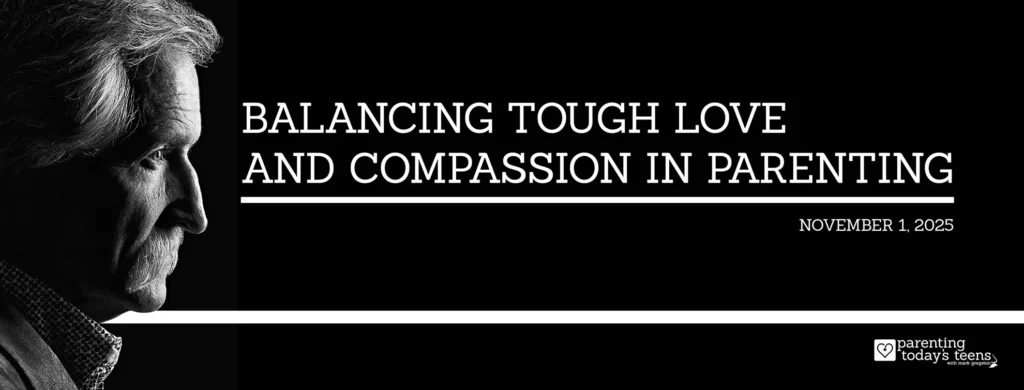No parent should be surprised by studies revealing that the vast majority of teenagers have lied to their parents. But what do you do if you can’t trust anything your teen says anymore? Dishonesty during adolescence is common; however, when lying becomes a pattern it demands your attention. In this article, I’ll provide practical guidance for parents facing consistent dishonesty from their teens, and I’ll help you restore trust at home. If your teen is lying consistently, here are 6 things you can do to handle a lying teen.
1. Resolve to Take Action
If left unchecked, lying will become a habitual behavior for your teen, and lead to increasingly serious consequences as they grow older and attempt to build healthy relationships. Dishonesty doesn’t just damage your relationship now—it can undermine your teen’s ability to form healthy relationships throughout their life. Even when addressing the issue feels overwhelming, commit to helping your teen break free from patterns of deception.
Remember that taking action means recognizing the problem and committing to address it with wisdom and compassion. Your teen’s future relationships depend on learning honesty now, during these formative years.
2. Talk About the Problem
Having an honest conversation with your teen about dishonesty is important—even if it feels awkward. Choose a calm, unhurried time when emotions aren’t running high. Begin by gently sharing what you’ve observed, making it clear that your goal isn’t just to hand out consequences, but to understand what’s going on and offer support.
Create a safe, judgment-free space by using “I” statements instead of accusations. For example, say, “I noticed you said your room was clean, but it still looked messy,” rather than, “You lied about your room.” This approach helps keep your teen from feeling defensive and opens the door to a more meaningful dialogue. Be willing to reflect on how your own past reactions may have shaped their behavior. Teens often resort to lying when they feel unsafe telling the truth—so showing them that honesty is met with empathy, not just punishment, can help break the cycle.
3. Find Out What Is Motivating the Lying
There is always a reason behind a teen’s dishonesty. They are lying to get something they want, or avoid something they don’t want. Understanding these motivations will help you address the root causes rather than just the symptoms. Some common motivations behind teen dishonesty include:
- Fear of damaging their relationship with you or disappointing you
- Striving to maintain a perfect image, either for you or for others
- Avoiding anticipated punishment or anger
- Concealing inappropriate behaviors, like sexual activity, they know you’ll disapprove of
- Hiding substance use that may indicate deeper problems
- Pressure to conform to peer expectations that conflict with your family values
- Avoiding uncomfortable conversations or confrontations
Understanding which of these factors is driving your teen’s behavior will shape your approach to addressing the problem.
4. Set Consequences for Lying
Establishing clear consequences is key to helping your teen understand the real impact of dishonesty. Make sure your teen knows ahead of time what the outcome will be if they choose to lie, and be consistent in following through. Emphasize that these consequences aren’t about punishment—they’re about building a foundation of trust and integrity that will benefit them for life.
Choose consequences that are meaningful to your teen, such as limiting phone access, car privileges, screen time, or social outings. However, avoid measures that isolate them entirely or sever important peer relationships. The goal is to discourage dishonesty—not to damage your connection with your teen or harm their healthy social development.
5. Reward the Truth
Just as consequences teach the cost of dishonesty, your teen also needs to experience the rewards of telling the truth. When your teen chooses honesty—especially when it’s hard or comes at a personal cost—it’s crucial that you acknowledge and affirm that choice. A simple, sincere statement like, “I really appreciate you being honest—that shows maturity and character,” can go a long way in reinforcing positive behavior.
Consider also offering tangible rewards, such as increased privileges, trust, or freedom. When teens consistently see that honesty leads to stronger relationships and greater independence, they begin to understand that the long-term benefits of truthfulness far outweigh any short-term gains from lying.
6. No Matter What, Continue Pursuing a Relationship With Your Teen
If your teen has developed a pattern of dishonesty, remember—it won’t change overnight. Be patient and don’t expect immediate perfection. What matters most is your ongoing presence and unwavering support. Keep showing up. Spend time together. Express love without conditions. And continually remind your teen that you believe in who they are becoming.
Ultimately, your relationship is both the goal and the most effective tool for change. When teens feel deeply connected and emotionally safe with their parents, their need to lie diminishes. So take a genuine interest in their world, listen without judgment, and seek out moments to simply enjoy each other—without always focusing on what’s wrong. Your steady, compassionate presence sends a powerful message: “You don’t have to be perfect to be loved.”
Conclusion
Teens don’t lie without reason. Whether it’s to avoid consequences or to get something they believe honesty would cost them, lying is often a self-protective behavior rooted in fear or self-interest. While it’s not unusual during adolescence, it’s also not a habit that can be ignored. If left unaddressed, dishonesty can harden into a pattern that damages your teen’s future relationships, erodes trust, and limits their growth.
That’s why it’s essential to address lying head-on. Help your teen understand that dishonesty is not just a behavioral issue—it’s a relational one. It shows disrespect and can deeply harm the people who care about them most. Teach them that truthfulness is a cornerstone of trust and healthy relationships.
The learning process will require both clear consequences for dishonesty and meaningful rewards for honesty—especially when telling the truth costs them something. When you consistently affirm and reward truth-telling, you send a powerful message: honesty matters, and it’s worth it. With your support, your teen can break the habit of lying, grow in integrity, and build stronger, more trustworthy relationships for the future.






